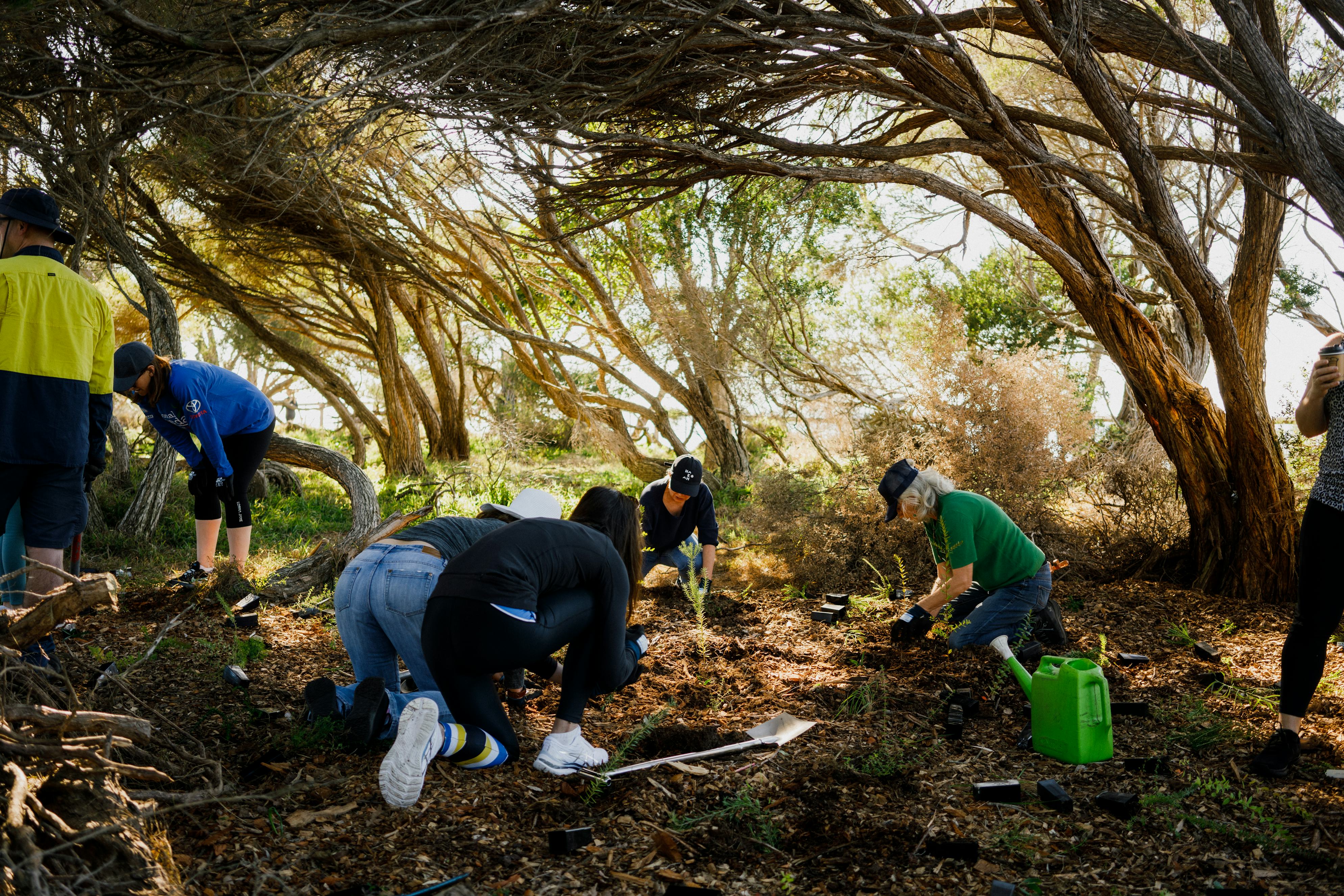This milestone marks the first full year in which the average temperature exceeded the 1.5°C threshold outlined in the Paris Agreement. The announcement by the Copernicus Climate Change Service, the European Union’s Earth Observation Program, underscores the critical urgency of addressing greenhouse gas emissions, driven primarily by the burning of fossil fuels, that fuel global heating.
Copernicus also found that each year in the last decade was one of the ten warmest on record, with director of the organisation Carlo Buontempo stating this was just the latest piece of evidence pointing to global heating.
“All of the internationally produced global temperature datasets show that 2024 was the hottest year since records began in 1850,” he said.

Global surface air temperature increase (°C) above the average for the pre-industrial reference period (1850–1900) for each month from January 1940 to December 2024. Image: Credit: C3S / ECMWF.
Extreme weather events reflect this alarming trend, including unprecedented heatwaves, heavy rainfall, and natural disasters such as the ongoing and devastating wildfires in California. Australia also faced significant impacts, recording its second-hottest year ever, with some regions experiencing their warmest temperatures to date.
While natural factors like El Niño contributed to the record heat, scientists emphasise that human activity remains the primary driver of global warming. A near-linear relationship exists between greenhouse gas emissions and rising temperatures, meaning every tonne of emissions adds to the problem.
The statistics for 2024 are a stark warning that the world is at a tipping point. However, it’s not too late to act. Accelerating efforts to decarbonise the global economy and create a net zero circular economy is crucial to altering the trajectory of Earth’s climate and minimising the worst impacts of global heating in the decades ahead.
“Humanity is in charge of its own destiny… The future is in our hands - swift and decisive action can still alter the trajectory of our future climate” – Carlo Buontempo, Director Copernicus Climate Change Service.
To achieve this goal, action will need to take place across society, including the public, private and nonprofit sectors. But that doesn’t mean we as individuals don’t have an important role to play in making changes within our own lives and advocating for change in these sectors.
So, where do we start?
Make changes at home
Reducing your environmental footprint should start at home, where most of our resource consumption, energy use and waste generation occurs. Simple changes such as cutting back on meat, starting a compost, reducing your household food waste, switching to renewable energy providers, or improving recycling practices can have a big impact. Further action, like installing solar panels or rainwater tanks, can step up your positive impact even further, significantly reducing the greenhouse gas emissions your home generates.
Events like National Recycling Week, Earth Day, Stop Food Waste Day, Sustainable House Day and National Water Week are great reminders to take stock of how sustainably we live at home. They also often provide resources to help households reduce their environmental impact and greenhouse gas footprint. Online platforms like Recycling Near You can provide information on how to reduce waste and improve recycling at home.

Recycling Near You provides information on how to recycle a variety of materials at home, as well as general waste minimisation tips.
Extend this new approach beyond your abode
Once you’ve made changes at home, consider extending these habits to your workplace or school to inspire broader action. Change nearly always comes from within these organisations and sometimes it can be as simple as starting the conversation or getting together with other like-minded people to get the ball rolling.
If you are working from home, your work practices should also embrace sustainability, such as recycling printer cartridges and choosing eco-friendly office supplies. Simple things like putting aside printer cartridges to be recycled, choosing high-quality recycled office paper, and setting up extra recycling bins for items like batteries can make a big difference.

Recycling stations don't have to be complicated to make a difference to your workplace waste.
Do your bit for the environment
With 25 per cent of Australia’s threatened plants and 46 per cent of threatened animals living in urban areas, taking action to support the environment within these communities can make a significant difference. Planting native trees, shrubs, and grasses helps create habitats and food sources for wildlife while establishing vital corridors for safe movement. Not to mention, trees absorb carbon dioxide from the atmosphere, which helps reduce greenhouse gases and fight climate change
Participating in initiatives like National Tree Day or joining community groups like Landcare and Bushcare are great ways to dig in and get your hands dirty for the environment by protecting and restoring ecosystems.

National Tree Day is an excellent opportunity to get the whole family out in nature and getting their hands dirty for nature.
Embrace sustainable transport
Transportation accounts for a significant portion of global greenhouse gas emissions, but adopting more sustainable habits can make a real difference. Start small by walking or cycling for short trips—it’s not only better for the environment but also promotes physical health. Public transport is another excellent alternative, reducing the number of vehicles on the road and lowering overall emissions.
For longer trips, consider carpooling with friends, family, or colleagues to cut down on individual car usage. If you’re thinking of upgrading your vehicle, switch to an electric or hybrid car, and explore government incentives that may help offset the cost. For unavoidable air travel, use carbon offset programs to invest in initiatives like reforestation or renewable energy projects, helping to balance out the emissions generated.

Sustainable transport such as bicycles can help significantly reduce your environmental footprint. Image: Pixabay
Get involved in citizen science
Citizen science offers a hands-on way to combat climate change and protect biodiversity by contributing valuable data to researchers and policymakers. Many projects involve simple tasks that can help scientists monitor environmental changes, track species migration, or identify hotspots of environmental degradation.
Popular programs like birdwatching surveys, marine debris clean-ups, or tree canopy mapping projects make it easy to participate in meaningful work. Platforms like iNaturalist and eBird allow anyone with a smartphone to record their findings and become part of a global data network. On a local level, citizen science can empower communities to advocate for policy changes while building knowledge and fostering greater connection between those communities and their environment.

By participating in citizen science projects like the Aussie Bird Count you can help experts improve their understanding of the natural world around you whilst getting to know the wildlife on your doorstep. Image: Geoffrey Moore/Unsplash
Put your dollar where your beliefs are
Remember, every purchase you make sends a message about the world you want to live in. That means you can use your wallet to support organisations and brands that align with your personal ethos and are striving for sustainability, whether that be through reducing their carbon footprint, implementing positive environmental practices or taking responsibility for the waste their business produces. Conscious consumption also includes considering whether new items are necessary at all and opting for second-hand options whenever possible.
Beyond everyday shopping, it’s also worth checking whether other places you’re keeping your money, like your bank and superannuation fund, are using it in ways that align with your values. If not, there are ethical super funds and banks that may align with your values more by prioritising renewable energy investments over fossil fuels.

Putting your money in banks and super funds that support renewable energy projects can help get them off the ground.
Raise your voice
You can engage in political action by voting for climate-conscious leaders and writing to representatives to demand urgent action on climate change. Discuss sustainability with friends and family, sharing tips like recycling right or starting a compost. This doesn’t have to be in person, as you can also use social media to inspire others by sharing your journey and the benefits of sustainable living.
Encourage businesses and governments to adopt circular economy principles, which prioritise designing out waste, keeping materials in use, and regenerating natural systems. Supporting companies that embrace circular models – like take-back schemes or products made from recycled materials – is a practical way to drive systemic change.
Planet Ark’s work in behaviour change shows people are more likely to change the way they act when they see those closest to them making changes and when the actions correlate with positive desires and aspirations. So, showing the benefits you have experienced personally by living more sustainably can go a long way to changing others’ behaviour!

Climate protestors marching through the streets holding signs containing hopeful messages. Image: Li An Lim/Unsplash